Interview: ISC's David Melville & Melissa Chalsma On Being Free, Social Awareness & The Future
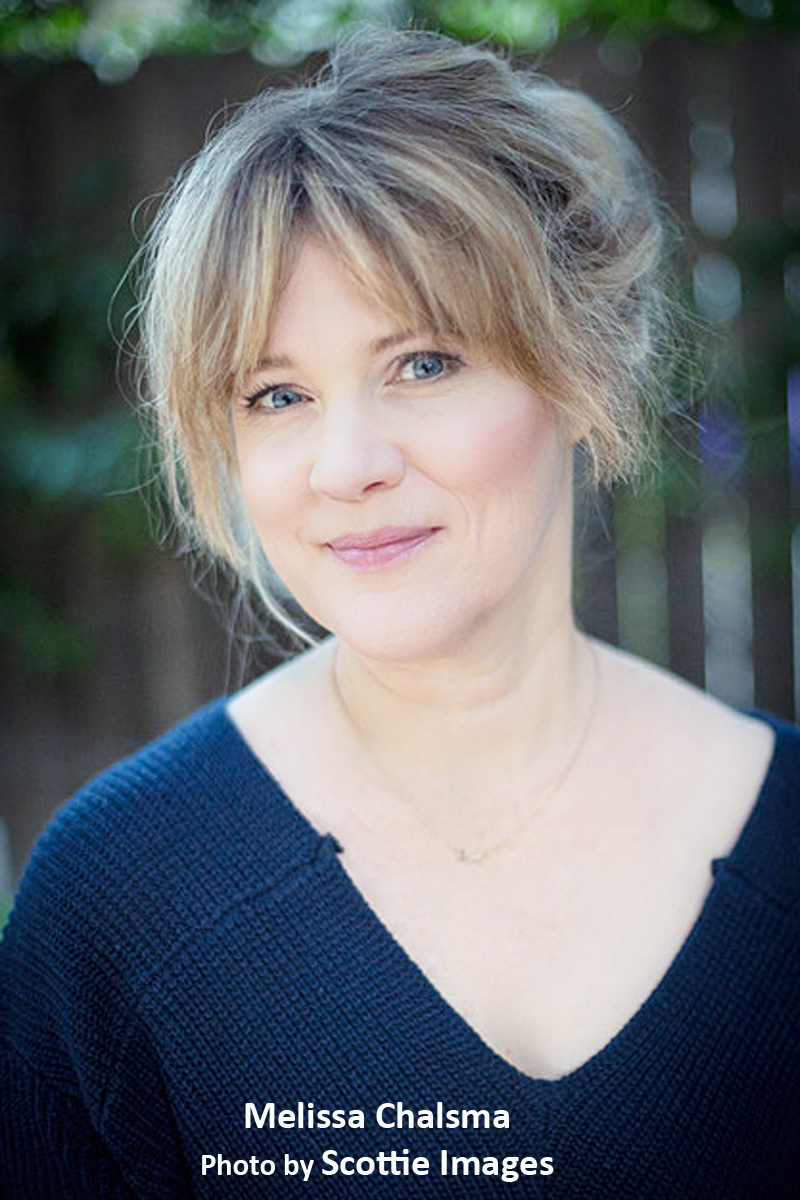
As live theatre remains in lockdown, Independent Shakespeare Company (ISC) is morphing their Griffith Park Free Shakespeare Festival into a free, livestreaming program of four FESTIVAL EVENTS on Saturdays in August, and a hybrid stage production of ROMEO & JULIET Labor Day weekend.
ISC's co-founders David Melville & Melissa Chalsma were most gracious in answering my emailed queries on their twenty-plus-years-old theatre organization.
Thank you for taking the time to 'chat' with me!
How are you two holding up staying-safe-at-home?
MELISSA: We are very lucky to be home with my children and husband (David Melville, co-founder of ISC), and able to continue to work. Of course, there are good days and bad days. I think the biggest impact on me personally is, as someone who has been challenged by anxiety disorders, it can be difficult to separate the things I should be worried about from things that can be let go safely. Any of your readers that also suffer from anxiety issues will know what I am talking about - the act of needing to evaluate if your worries are logical, is quite tiring! So some days, I know my mental health is not where it could be. Another thing I found interesting is how much the act of making theater contributed to my health. In other words, when I am immersed in creation, anxiety falls away, and I have a singular focus which is extremely restorative. I suppose this is one of the factors that has driven me all these years in terms of staying very busy with projects. Having been without that now for a few months, I really am feeling the absence keenly.
DAVID: It's hard not to get depressed. I've been keeping busy with home improvement projects - I'm just completing a vocal booth/micro-recording studio in the garage. I've noticed my alcohol consumption has gone up - so the combination of that plus power tools might mean I'm not necessarily safer-at-home. I'm lucky to be home with Melissa and the kids, they are great and it's lovely to spend time with them - summers are normally so busy. They just went to stay with Melissa's sister for three weeks and I was on my own - it was very hard, I can't imagine how difficult this must have been for those at home on their own constantly.
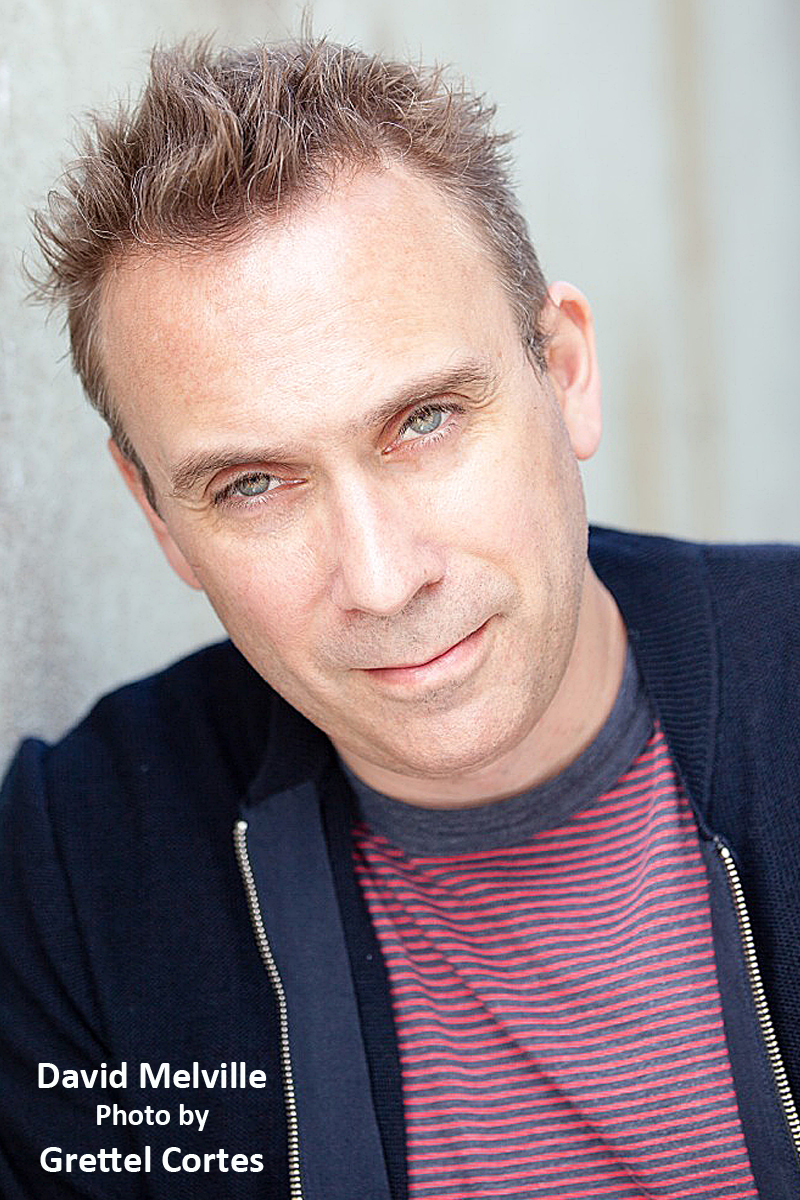 Are you both pretty proficient Zooming nowadays?
Are you both pretty proficient Zooming nowadays?
MELISSA: I am so much better at zoom than I ever wanted to be! I definitely miss the energy exchange that happens in a room when we are all together. And the sense that people's speaking is impacting me physically. I think a lot of shared joy, for example, is the actual physical impact of a person's vocalizations on your body - literally, you are being vibrated! That is why live laughter is so infectious. It impacts you physically. That physical exchange is absent on virtual exchanges. Not that you can't experience empathy, you can, obviously, but the sound element is just so different. Come to think of it, that is also what is wonderful about live theater - the actor's ability to impact an audience physically with their voice!
DAVID: Zoom is very useful. I never really used FaceTime and the like before, it just seemed so intrusive, but now I'm used to it. It's nice to see people's faces, but what I really love is to check out their rooms! Have you seen Ricky Gervais in any of his Zoom interviews? All his Emmys and BAFTA awards are carefully lined up behind him - hilarious!
Aside from the obvious disadvantage of not being in the same room, what pluses have you found in our new normal medium of Zoom?
MELISSA: I am grateful that technology has been so helpful in staying connected. It also has allowed for some collaborations that transcend geography, so that is a really neat impact that I hope to hold onto even when this infernal state of pandemic is over. There are certain meetings that I feel like will stay on digital platforms when we are able to move about more freely again. Especially in a city the size of L.A., why drive across town for certain meetings that are really about sharing information (as opposed to something more deliberately collaborative)?
I hope that as we move forward, we also consider how important technology has been to create connection during this time (for students, for example), and how those resources were, once again, very unevenly distributed. Many people and families do not have access to internet, or computers, so have been too isolated during this time. Because I do think that some of these new technologies are here to stay, I would like to see some real social energy behind ensuring that everyone in our community has access to that technology.
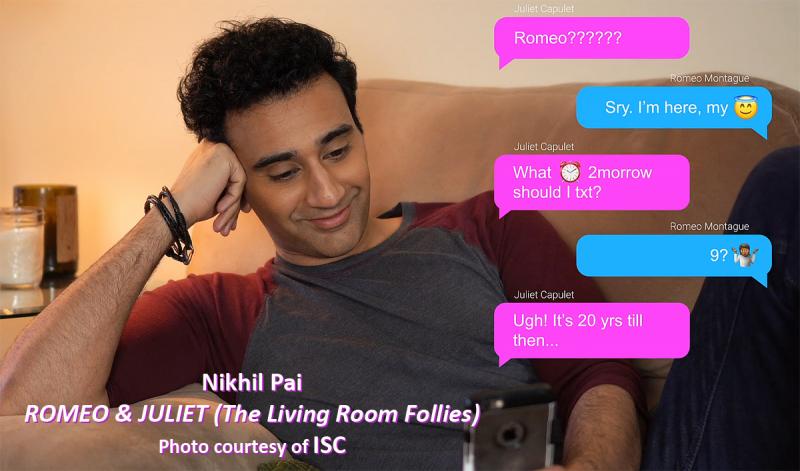 DAVID: It's great for board meetings, and the whole trouser-optional part is a terrific boon.
DAVID: It's great for board meetings, and the whole trouser-optional part is a terrific boon.
The seed of ROMEO & JULIET- LIVING ROOM EDITION was birthed from the five-minute short Melissa and ISC ensemble member Nikhil Pai put together for your online fundraiser in May. Can you take us through the gestation period of R&J?
MELISSA: Nikhil (who is also on the ISC Board of Directors) is one of my closest artistic collaborators - we had worked on ROMEO & JULIET twice before (once in our indoor ISC Studio, and once in Griffith Park as part of the FESTIVAL.) Selfishly, I loved having the chance to work artistically with him again! Once we came up with the concept, we ran with it! It was great that Erika Soto (who played Juliet in our first ISC incarnations of the play) was able to record her sequence as well. The audience response to this piece was so great, and Nikhil and I realized that we enjoyed thinking about Shakespearean storytelling in this way, using the medium of film. We begin to think about expanding this point of view to the whole play.
Before presenting ROMEO & JULIET, ISC has four consecutive Saturdays in August of live streaming. What can ISC devotees expect to experience in these four programs?
MELISSA: Like the FESTIVAL, we are trying to make each of the livestreams have something for everyone! A big part of our thinking was examining what the FESTIVAL provides for the audience. Of course, there is the central experience of experiencing Shakespeare that has a very free and expansive sensibility. There is the feeling of going to an event, and that attending the FESTIVAL feels special. And a giant piece for us is the community-building aspect of the FESTIVAL, where people are getting to know one another and also learning about the community (for example, last year we did learning around sustainability and protecting our oceans.)
So, for devotees, they will have a great chance to look back at the FESTIVAL, and (I hope) remember so many wonderful experiences we shared. For newcomers, they will definitely get a sense of the slightly chaotic and irreverent experience of what performances at the FESTIVAL are like. We are featuring both artistic events, and also discussions about issues that are impacting our community now.
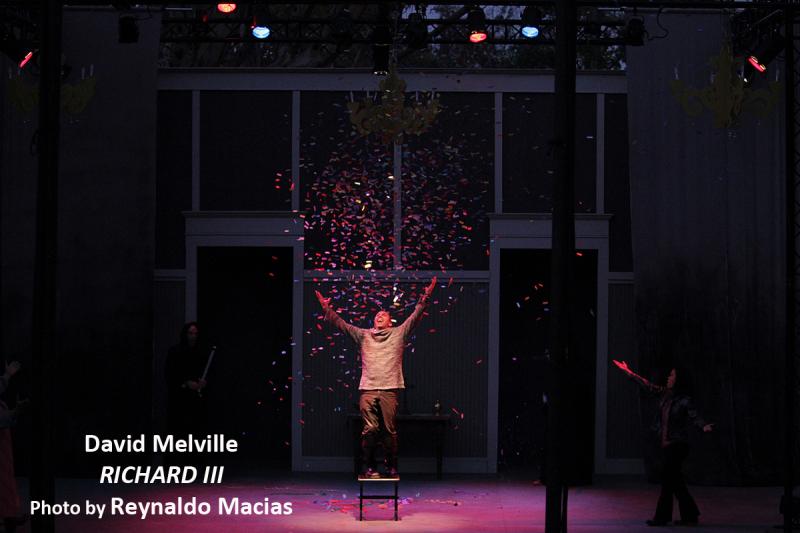 In response to the George Floyd protests, you've recently established the new position of Artistic Associate for Social Justice on the ISC staff. You've always used color-blind casting in your productions and geared your shows for audiences of all ages and cultures. ISC was awarded the Paul Robeson Citation Award from Actors Equity in 2018. So what differences are you inputting into ISC's approach to diversity that you haven't already?
In response to the George Floyd protests, you've recently established the new position of Artistic Associate for Social Justice on the ISC staff. You've always used color-blind casting in your productions and geared your shows for audiences of all ages and cultures. ISC was awarded the Paul Robeson Citation Award from Actors Equity in 2018. So what differences are you inputting into ISC's approach to diversity that you haven't already?
MELISSA: We actually don't do color-blind casting, it is more accurate to say we do color-conscious casting. In other words, the diversity onstage is a distinct choice, and we know there is a responsibility to think about the ramifications of those choices in terms of the experience that is created for audience members and artists. We're also committed to creating diversity backstage and in our staff.
But I really want to say - in a community like Los Angeles, this should not be remarkable or exceptional. It should be the norm. We have an enormous community of theater makers here -- and I'm speaking to primarily white theaters here. If your entire community of theater makers is not diverse, you need to change that and you can change that. Speaking more specifically to social justice, the tenants of equity and access have been part of our programming and organization for many years now. Not a day goes by in our office that we are not thinking about these issues. We believe passionately that access to theater - both as an audience member and as an artist or theater professional - is a fundamental right. Because we believe theater is of major importance to the human experience. It so deeply enriches one's life. I'm going to also add that for an organization, diversity makes all your collaborative spaces more exciting and inspiring, and your work will be better and stronger. If audiences have been enjoying our work, they are literally enjoying social justice in action.
We created the new staff position (filled by Carene Rose Mekertichyan) because we realized that we had overlooked the fact that to truly achieve our mission of equity and access, we need to more deliberately consider the impacts of racism and public policy on our ability to carry out our mission. I'm going to use an example where we failed. For many years, you could take a bus TO the FESTIVAL performances, but because the busses stopped running through the park at a certain time, you couldn't get OUT of the park on public transportation. I have stopped on my way out of the park numerous times to give audiences members a ride down the hill, and so have many people in our ensemble. With the advent of ride share, this seemed less of a pressing issue. Here's the problem: someone who is dependent on the bus looks up getting to the FESTIVAL, and sees they aren't going to able to get home - so they 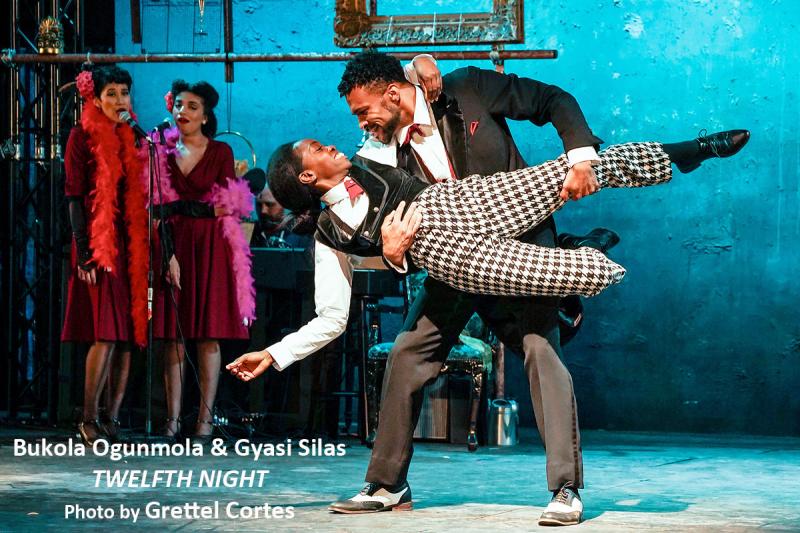 simply don't attend. And a lack of public transport access communicates to people that we don't really care if they come to our shows or not. I'm grateful that there is now an inner-park bus that will allow for access - but looking back, we should have spent a lot more time advocating that the bus keep running. We just felt we didn't have the resources to do that, and other things seemed more important. Had we had Carene in her position then, I am sure she would have pointed out how lack of access via public transportation was deleterious to our mission, and we would have made a much bigger push to get it to happen sooner. Moving forward, I am excited to have someone on staff who will be focused on looking at our work from that lens. We can address things earlier and more efficiently.
simply don't attend. And a lack of public transport access communicates to people that we don't really care if they come to our shows or not. I'm grateful that there is now an inner-park bus that will allow for access - but looking back, we should have spent a lot more time advocating that the bus keep running. We just felt we didn't have the resources to do that, and other things seemed more important. Had we had Carene in her position then, I am sure she would have pointed out how lack of access via public transportation was deleterious to our mission, and we would have made a much bigger push to get it to happen sooner. Moving forward, I am excited to have someone on staff who will be focused on looking at our work from that lens. We can address things earlier and more efficiently.
Together you both co-founded ISC back in 1998 in New York's Lower East Side. What prompted you to move ISC to Los Angeles in 2001?
MELISSA: I got pregnant, and David and I were losing our apartment. Our budget was making it really hard to stay in New York. We moved to L.A. to be near family, and because it seemed more economically feasible as artists. Within a few months, we realized we had a strong need to keep producing theater, and ISCLA was born, really, just after our daughter was!
DAVID: I'd heard that the housing was cheaper in L.A. and there were plenty of jobs waiting tables. We wanted to be in New York because of the theater, but the reality was most of our income came from our side jobs, waiting tables and working at a detective agency. So, we decided to quit acting and move to L.A.
What sparked the idea of performing Shakespeare for free in a park?
MELISSA: We love putting Shakespeare in big spaces that require big voices and bold physicality, so of course, outdoors fit really well with that. The "free" part is pretty clear, I'd imagine. Theater tickets can be an expense many people can't afford. Theater should be available to everyone, so at least some theater needs to be free. We are really happy this commitment lets us serve such a big audience-about 45,000 during a typical summer. We also know that because it is free, many people are trying out theater for the first time. We hope they like it, and then go on to make it a part of their lives.
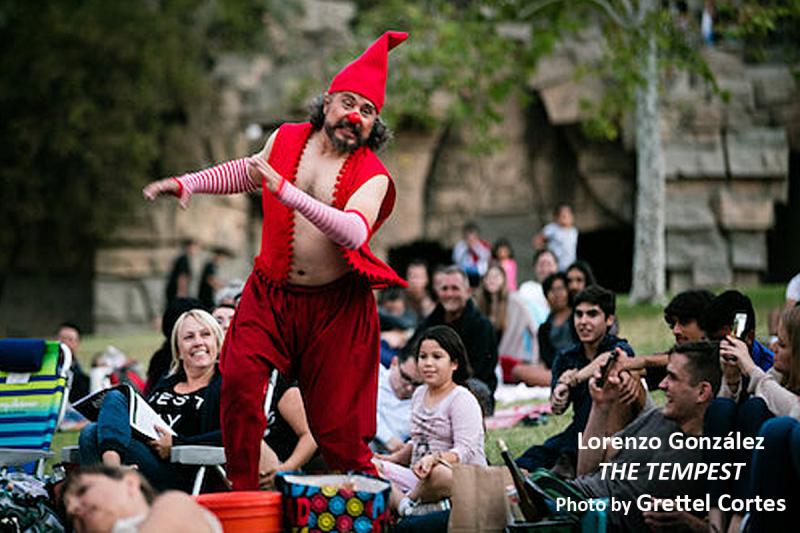 DAVID: One of my oldest friends who is also a British transplant happened across the Sooky Goldman Amphitheater in Franklin Canyon Park just off Mulholland and Coldwater. He sent me some pix saying we should do a show there. We checked it out - it's a sweet little spot with room for about two hundred. So we did a weekend of performances of MACBETH there. We were amazed at how many people turned up. As Melissa says, the free part is pretty clear and a lovely American tradition.
DAVID: One of my oldest friends who is also a British transplant happened across the Sooky Goldman Amphitheater in Franklin Canyon Park just off Mulholland and Coldwater. He sent me some pix saying we should do a show there. We checked it out - it's a sweet little spot with room for about two hundred. So we did a weekend of performances of MACBETH there. We were amazed at how many people turned up. As Melissa says, the free part is pretty clear and a lovely American tradition.
In the twenty-two years of ISC, is there a Shakespeare piece you haven't put on?
MELISSA: So, so many! KING LEAR (which we were planning on doing this summer), CORIOLANUS, HENRY VI (all the parts!), KING JOHN, and more-Fortunately, we still have a lot of work to do!
DAVID: The world still awaits my uncut, 12-hour version of HENRY VI.
Melissa, you're ISC's artistic director and David, you're its managing director. How did you both decide on which title/position to undertake?
MELISSA: Initially, we started using those titles because we needed to have something to put down for proposals - everyone wants to know who is filling these two positions. I suppose I do what artistic directors generally do. Overall though, we work collaboratively, not just the two of us, but our whole staff. So there is a very a lot of decision making that happens in the room, so to speak, with the whole team. The titles, in this case definitely don't tell the whole story!
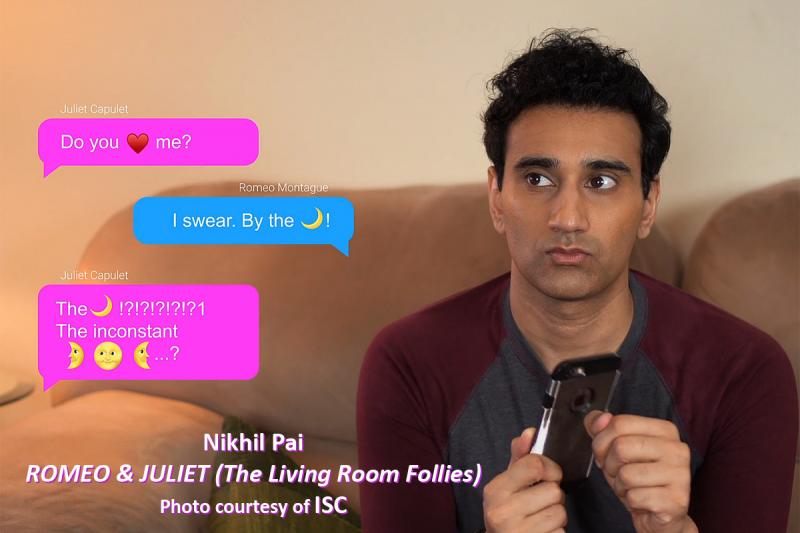 DAVID: It was in the early days, I think I was filling out an IRS form and I couldn't put us both down as artistic director - or at least that didn't seem very serious. I think people relate to Melissa as the artistic head and she fills that role really well. I do a lot of the budgeting and business management, but I'm also very involved in artistic decision making. Hopefully one day soon we will be able to hire a full time managing director.
DAVID: It was in the early days, I think I was filling out an IRS form and I couldn't put us both down as artistic director - or at least that didn't seem very serious. I think people relate to Melissa as the artistic head and she fills that role really well. I do a lot of the budgeting and business management, but I'm also very involved in artistic decision making. Hopefully one day soon we will be able to hire a full time managing director.
What specific functions of your respective positions are you responsible for? Do you find some functions overlap for you two?
MELISSA: I never, ever drive trucks full of equipment and stage platforms, that is totally David's purview. And David generally doesn't do curriculum planning. But in all other ways, I feel like we overlap.
DAVID: There is quite a bit overlap. We are a tiny staff, so everybody does about five different jobs. I tend to more of the physical stuff and I love to get involved with tech elements, Melissa is great with graphic design and basically all visual aesthetic elements. Nobody can swag curtains like her.
Melissa, as both an educator and a director, do you find the two roles similar in purpose and function? Do you approach either any differently?
MELISSA: They are very similar! As a teacher, I was trying to work out ever-improving ways of helping my students actualize their creative selves. My commitment as a director is the same - I want artists to be maximally creative and identify new ways to collaborate - with each other and with me as a director. Because I'm an actor, early on I was very focused on the actor experience, probably to the detriment of some of the other people involved. I hope as the company has grown, I am doing a better job of expanding that commitment to all the artists and theater makers on the team.
David, two of your earlier day jobs were private detective and brand ambassador for Bombay Sapphire. Can you share a memorable incident during both of these gigs? And do you still drink Bombay?
DAVID: I still drink Bombay, of course! Its unique vapor infusion system and ten proprietary botanical ingredients set it apart from all other gins! Mmmmm! Actually I've been a bit of a traitor lately and I've been experimenting with American gins - Blinking Owl is a favorite. I can't do martinis anymore, though - I used to love them but my constitution isn't what it was. When I worked for Bombay, I had to travel around the U.S. and give presentations about how the gin is made and, more importantly, what one should do with it. I had a carry-on case with samples of all the ingredients in canisters that must have looked like a bomb in the airport security x-ray. Wherever I went, I smelled of juniper - a delightful aroma at cocktail hour, but at 6am... not so much. Most of my presentations were at 8am in the morning and I always finished them off my making a Tom Collins. An eventful start to the day!
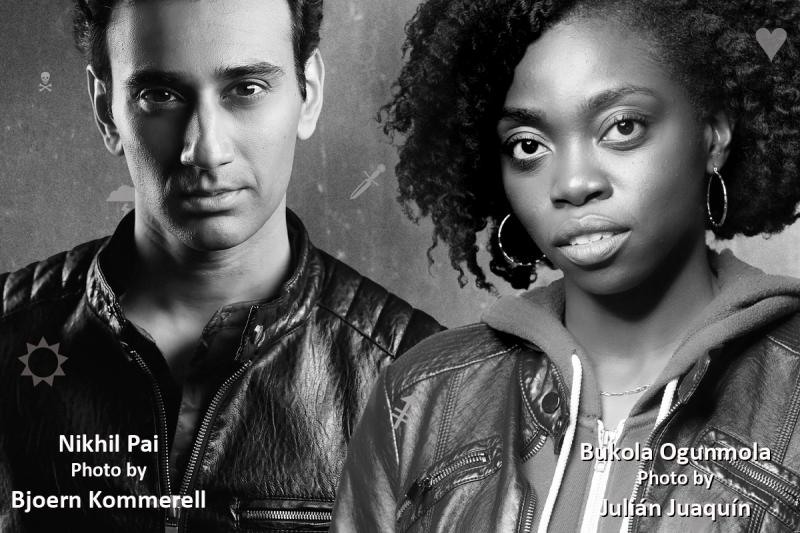 The detective agency was quite a lark. there were a number of actors employed there. We would be out on the streets and, not to go into too much detail, we were required to wear disguises and encouraged to change appearance several times a day. When you clocked into work you had to go into the disguise room and pull together several outfits, wigs, mustaches etc. I wasn't a very good detective, but I loved the dress up. I did identify someone wanted by the FBI once and I had to go back and get footage of him with "video glasses." Nowadays, of course, these would be tiny and impossible to detect. But in the late 90's, it meant having a video recorder, gaffer-taped to my waist, under a wind cheater and these massive Joe 90 frames with huge wires coming down the back. I was very lucky I wasn't spotted. Looking back, it was quite a dangerous situation.
The detective agency was quite a lark. there were a number of actors employed there. We would be out on the streets and, not to go into too much detail, we were required to wear disguises and encouraged to change appearance several times a day. When you clocked into work you had to go into the disguise room and pull together several outfits, wigs, mustaches etc. I wasn't a very good detective, but I loved the dress up. I did identify someone wanted by the FBI once and I had to go back and get footage of him with "video glasses." Nowadays, of course, these would be tiny and impossible to detect. But in the late 90's, it meant having a video recorder, gaffer-taped to my waist, under a wind cheater and these massive Joe 90 frames with huge wires coming down the back. I was very lucky I wasn't spotted. Looking back, it was quite a dangerous situation.
When theatre will be live and in person again, what productions would you like to present to eager Los Angeles audiences?
MELISSA: First I want to hug everyone. After that, I am very open to seeing what seems like the right play to produce.
DAVID: No brainer - my 12-hour HENRY VI, methinks! Or better yet, something funny, loving, and life affirming. I'd love, love to come back to LOVE'S LABOUR'S LOST one of these days. AS YOU LIKE IT too. Melissa wants to replace me and play Touchstone. I can't wait to see that!
Thank you Both again! I look forward to checking out your FESTIVAL EVENTS and your hybrid ROMEO & JULIET.
For free livestreaming access to the FESTIVAL EVENTS on Saturdays in August and ROMEO & JULIET starting on September 3, 2020; log onto www.iscla.org
Comments

Videos

